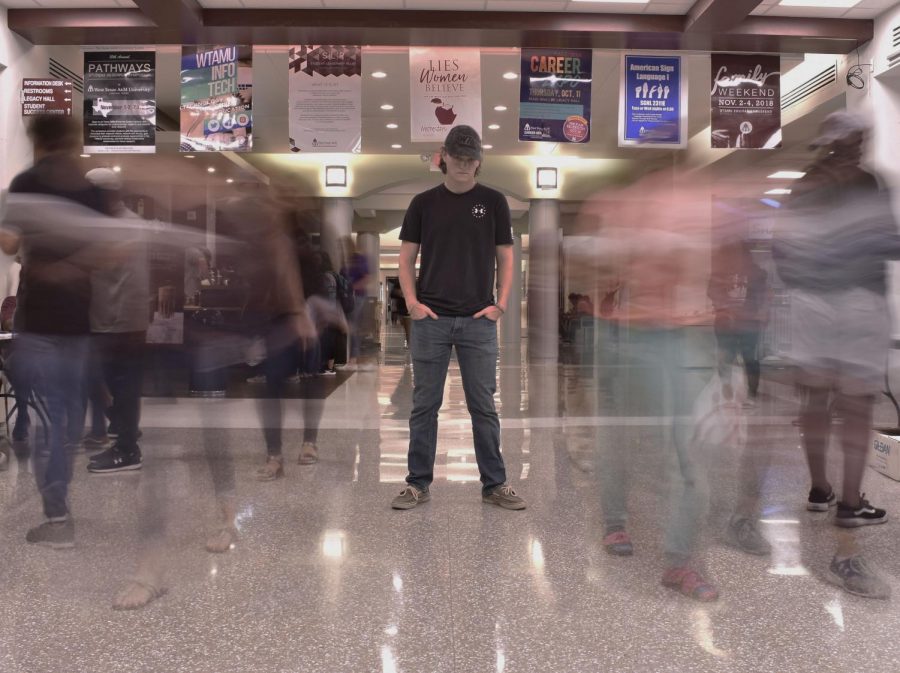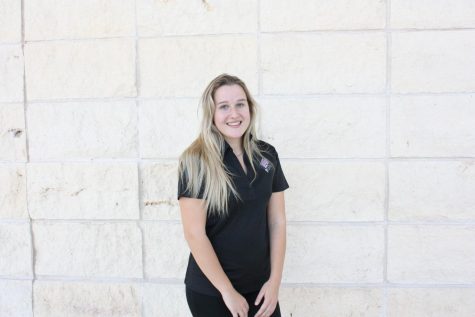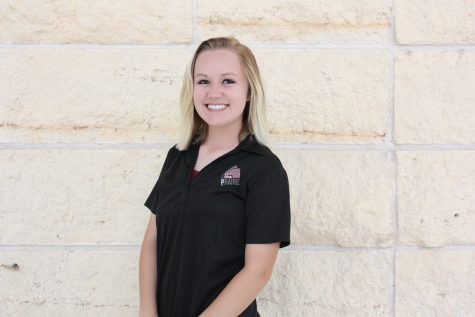Budgets are cut as suicide rates increase nationwide
Illustration
September 20, 2018
According to the Institute for Health Metrics and Evaluation, Sweden’s death rate due to mental health issues and substance use disorders was 5.9 of every 100,000 people in 2015. In the Netherlands, it was 2.5 and in Canada, 5.8. In the United States, the rate laid at 12.0, a full 7.1 points higher than the average among similarly wealthy countries.
On Feb. 12 of this year, President Donald Trump released the budget for the fiscal year of 2019. The budget presented a cut of $17.9 billion to the Department of Health and Human Services and a $665 million cut to the Substance Abuse and Mental Health Services Administration.
“Many of the cuts in the plan are unlikely to become reality: Congress just increased spending limits last week, and it rarely dares to change entitlement programs. But the budget is an important signal of the administration’s priorities,” the Washington Post staff wrote on Feb. 16 in response to the budget reveal.
September is National Suicide Prevention month and according to the nonprofit Active Minds, today’s generation is closer to breaking the stigma around mental health than we have ever been. But suicide rates continue to climb with an increase of 30 percent from the year 2000 to the year 2016, the highest number since 1986, according to the Suicide Prevention Resource Center. On average, one person dies by suicide every three hours in Texas and it is the second leading cause of death for ages 15-34 in the state.
“We are progressing in a way that we are getting more vocal about things, but are we progressing fast enough is the question,’’ said junior music education major Koby Solis, “I don’t think we are.’’
Solis knows what it is like to struggle with mental health while juggling life in college. He grew up in a strict household in Lubbock, with a catholic father on active duty in the military. A young Solis attending military events with his family was required to “hold posture and composure,” and scolded if he didn’t.
“I didn’t really have a chance to be a kid, I always had to be grown up or act grown up,” Solis said. “You had to be headstrong and that’s that. And you don’t let anyone see you be sad or soft or have time for yourself.
“…I struggled a lot, especially in my middle school years and early high school, with trying to stay positive when everything around me seemed to be so negative.”
Being the oldest of four boys, there was no room for mess-ups and Solis felt like he was “next in line to be the man of the house” from an early age. His parents enforced strict gender roles, and when Solis came out as gay to his parents, the reaction wasn’t great.
“Along with all the pressure of how you should act, there was also that boiling inside,” he said. “…I would say if anything, it gave me extreme amounts of anxiety just trying to maintain the expectations. There were many nights that I would be up super late, and [up] early just to study, or to do what was expected of me.’’
Solis’ anxiety came with him to college. He explains that his parents’ beliefs are still engraved in him as he feels pressure to uphold the expectations and be a role model to his younger brothers. He believes that the stigma around mental health is dangerous and makes the situation worse.
“I feel like mental health isn’t talked about enough, if anything at all,” Solis said. “…It’s crazy, but people never start doing anything until something bad happens. “How many people have to die in order for us to see change?”
Solis isn’t the only one carrying mental health issues while balancing student life. According to Dayna Schertler, director of student counseling services, some common issues among WTAMU students are related to stress, pressure, relationships, anxiety, sleep and transition to life at college.
“I do think it is stigmatized but in the 24 years I’ve been doing it, it has gotten a lot better,” Schertler said. “…There is less stigma, but are we in a perfect place? Probably not.”
In 2009, WT’s Student Counseling Services moved offices from the Virgil Henson Activities Center to the Student Success Center to make counseling more accessible. To ensure students felt comfortable visiting the office in the much more open location, the windows were frosted and the door closed.
Schertler requested that the frost on the windows to be taken off when she became director in 2017.
“I said: I think things are different. Things are better. I think we can probably be a little more open,’’ Schertler explained.
She was told that wouldn’t be possible, because of the sensitive nature of counseling. Instead, she decided to at least leave the door open, and it has stayed open ever since.
“I think people, because they don’t know a lot about it, make assumptions like ‘if you are struggling with depression you’re always going to struggle with depression’, or ‘if you’re struggling with anxiety you’re not going to achieve as much as you’d like to,’” Schertler said. “I think because some of those beliefs still exist, people are reluctant to talk about it.”
Counseling Services offers 10 free sessions of individual therapy to students and unlimited weekly group sessions, all completely confidential. The university also participates in “Say Something”, a program where students who see something concerning on campus can text ‘‘WTAMU’’ followed by their concern anonymously to 50911.
There are many groups determined to help people with suicidal thoughts. The Crisis Text Line offers free support 24/7 to anyone who texts ‘‘help’’ to 741-741 and the National Suicide Prevention Lifeline can be reached at 1-800-273-8255.
Talking about mental health is what saved Solis and he speaks from own experience when he says it’s okay to not always be okay. Today, Solis no longer has fear of expressing his feelings.
‘‘I found that through talking and getting it out of my head and speaking my truth I’ve found healing, and it’s freeing and beautiful. As a society we need to encourage each other to be open, fearless and proud. There’s no pain and weakness to be open, it makes you stronger.’’





